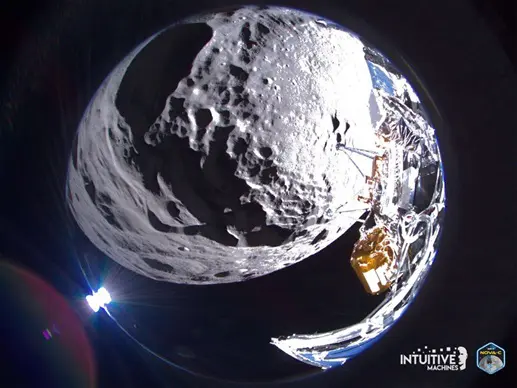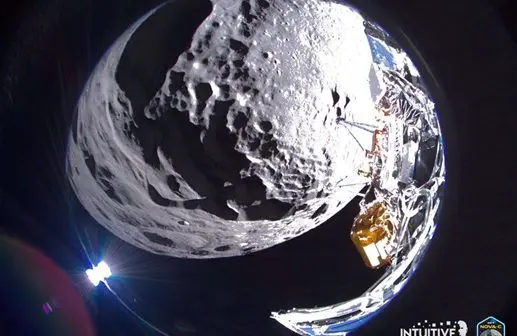
The United States is claiming Russia has put a counter-space weapon into orbit that could potentially interfere with a US satellite.
“On May 16, Russia launched a satellite into low Earth orbit that the United States assesses is likely a counter-space weapon presumably capable of attacking other satellites in low Earth orbit,” US Ambassador Robert Wood said on May 20 ahead of a Security Council vote on a Russia-Drafted UN Security Council Resolution on Outer Space Security.
“Russia deployed this new counter-space weapon into the same orbit as a US government satellite. Russia’s launch follows prior Russian satellite launches likely of counter-space systems to low Earth orbit in 2019 and 2022.”
Contesting resolutions that would ban certain weapons in space have recently been put before the Security Council for a vote. A draft resolution authored by the US and Japan tackled weapons of mass destruction but was shot down during an April 24, 2024, meeting. The rival Russian resolution, co-sponsored by China, dealt with a wider range of weapons. But Ambassador Wood told the Security Council that resolution was full of “diplomatic gaslighting and dissembling.” He said the Russian resolution failed to reaffirm the basic obligations of the Outer Space Treaty and avoid a nuclear arms race in space.
Russia’s UN ambassador, Vassily Nebenzia, rejected these claims, calling this week’s vote “a unique moment of truth for our Western colleagues. If they fail to support this, then they will clearly show that their main priority remains keeping freedom of the way for themselves to expedite the militarisation of outer space.”
During a May 21 Pentagon press conference, Major General Pat Ryder doubled down on the Ambassador’s remarks, saying the US military assessed the Russian space deployment as a likely counter-space weapon capable of attacking other satellites in low Earth orbit.
“We would say we have a responsibility to be ready to protect and defend the space domain and ensure continuous and uninterrupted support to the Joint and Combined Force,” he told reporters. “We’ll continue to balance the need to protect our interests in space with our desire to preserve a stable and sustainable space environment.”
Following Ambassador Wood’s speech, the Security Council split 7-7 between backers of the US and of Russia, with Switzerland abstaining. The measure failed under UN rules because it didn’t receive nine votes.
Fu Cong, China’s permanent representative to the United Nations, said his government “regretted” the resolution not passing. “The Russian draft resolution recognizes the role and contributions of the Outer Space Treaty while addressing the gaps in it by explicitly prohibiting the placement of weapons of any type in outer space and calling for an early conclusion of a treaty on arms control in outer space.”
Cong added that the resolution co-sponsored by the Chinese government had strong support from developing countries, most of whom did not have a voice on the Security Council.
“We will continue to spotlight Russia’s troubling actions in space, and how they diverge from its statements here in the Security Council,” added Ambassador Wood.





